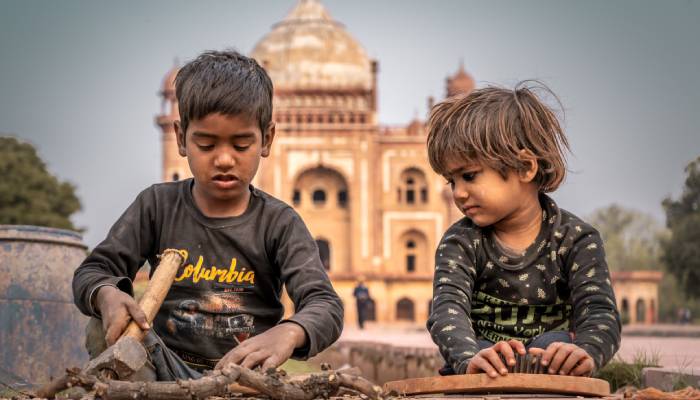
or

In November 2012, the UAE Council of Ministers formally adopted the federal draft law for children’s rights. While adopting the draft law, His Highness Sheikh Mohammed Bin Rashid Al Maktoum, Vice President, Prime Minister and Ruler of Dubai, stressed that:
His Highness also instructed to rename the proposed law as “Wadeema Law” ascribing to the eight-year-old girl “Wadeema” who was tortured to death by her father and his girlfriend and whose case shook the entire country.
The new law adopted by the Council of Ministers contains (72) Articles that consists of all the rights of the children guaranteed by the international instruments in accordance with the provisions of Islamic Sharia as well as the principles of the UAE constitution. The law includes fundamental rights, family rights, health, educational, cultural and social rights of the child, in addition to the right of the child to protection and mechanisms of providing protection to the child along with an entire chapter about the penalties.
It is pertinent to mention that even prior to the adoption of the new proposed law, there existed a legal framework for the protection of child rights in the country, which is based on the Article No. (15) of the constitution. The said article stipulates that the family is the basis of society, and its foundation is religion, morality and patriotism. These constitutional provisions are further strengthened and implemented by the Personal Status Law No. (28) of the year 2005. The said law emphasizes on the need for mutual respect between the spouses and the duty of care towards children and their up- bringing to ensure their noble up- bringing with the protection provided by the law. The law also provides for mothers’ natural right to the custody of the children. In addition to these provisions, there are other laws such as the Federal Penal Code No. (3) of the year 1978 and the Federal Law of Criminal Procedure No. 35 for the year 1992, as well as the Juvenile and Delinquents Act and the law of parentage.
However, the UAE government and lawmakers realized the need for having a unified legal framework to provide specialized protection under one legal text that was earlier provided by other legal provisions. The other important consideration that led to the adoption of Wadeema Law, is the rising importance of child rights in the international context. In fact, UAE itself has ratified the International Convention for the Rights of the Children and its principles, as were formulated in World Summit for Children held in New York in 1992 and adopted by the United Nations.
Some of the key features of the draft law include the following:
Out of the above, the most important feature is that it makes mandatory to report about suspected child abuse and it applies to doctors, teachers and anyone else dealing with children. This particular feature is particularly noteworthy as it provides for an additional protection that was missing under the Federal Penal Code, which punishes the direct offender and the partner in crime, but does not apply to those relatives who have knowledge of such crime, but fail to report the same. In a recent development, it has been suggested to increase the scope of the application of the proposed law to nursery schools operating in the country.
The proposed law is a landmark legal development. Once implemented, the law might face certain challenges like any other law, but lawmakers and the rulers of UAE are confident that after successful implementation, the law will certainly bring a new legal and social era in the country.
KarteeKKa Tyaggi is a Dubai based corporate and commercial lawyer with international experience of having worked in jurisdictions around the globe. Karteekka has worked with leading law firms in India before moving to UAE, where she worked with various corporate houses. She advises clients on International business and risk strategy, claims management, cross-border investments, acquisitions, joint ventures and commercial & regulatory issues.

Lex Witness Bureau

Lex Witness Bureau

For over 10 years, since its inception in 2009 as a monthly, Lex Witness has become India’s most credible platform for the legal luminaries to opine, comment and share their views. more...
Connect Us:


The Grand Masters - A Corporate Counsel Legal Best Practices Summit Series
www.grandmasters.in | 8 Years & Counting
The Real Estate & Construction Legal Summit
www.rcls.in | 8 Years & Counting
The Information Technology Legal Summit
www.itlegalsummit.com | 8 Years & Counting
The Banking & Finance Legal Summit
www.bfls.in | 8 Years & Counting
The Media, Advertising and Entertainment Legal Summit
www.maels.in | 8 Years & Counting
The Pharma Legal & Compliance Summit
www.plcs.co.in | 8 Years & Counting
We at Lex Witness strategically assist firms in reaching out to the relevant audience sets through various knowledge sharing initiatives. Here are some more info decks for you to know us better.
Copyright © 2020 Lex Witness - India's 1st Magazine on Legal & Corporate Affairs Rights of Admission Reserved